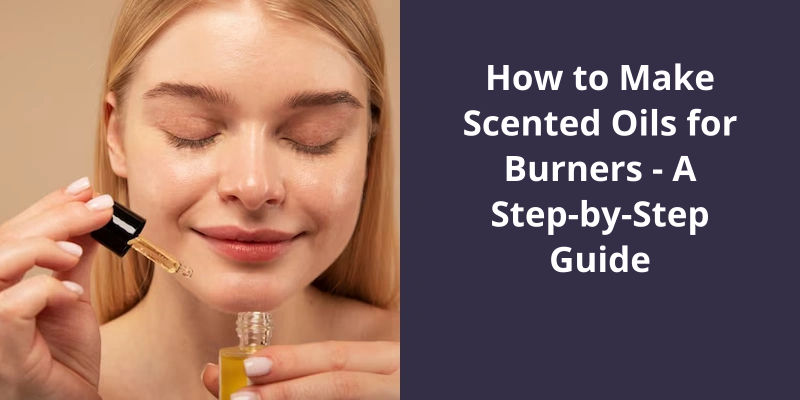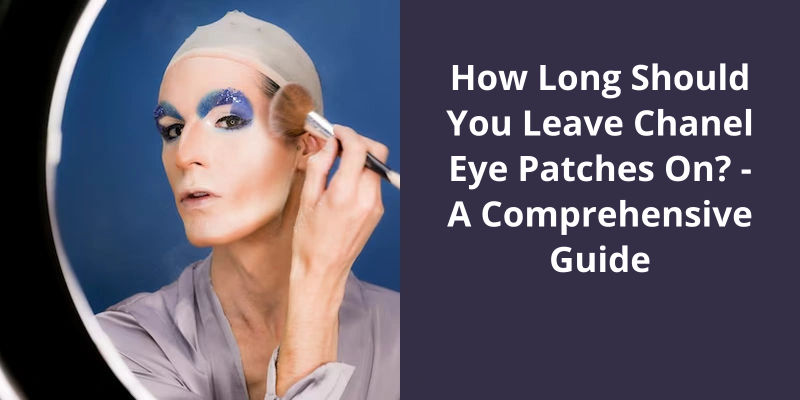Moisturizer can make your eyes water due to multiple factors such as the inclusion of potential irritants like fragrances, alcohols, or certain acids. These components can easily irritate your eyes, causing them to become watery. Additional factors include personal sensitivity to certain ingredients and applying the product too close to the eyes, which can allow the product to accidentally get into the eyes. The reaction can also be a sign of an allergic reaction to one of the components in the moisturizer. Therefore, it’s imperative to check the ingredient list before purchasing, to avoid any known irritants, and to apply carefully around the eye area.

How Can I Hydrate the Skin Around My Eyes?
The skin around the eyes is delicate and sensitive, and keeping it hydrated is important to maintain it’s overall health and youthful appearance. One of the best ways to achieve this is by upping your water intake. Drinking enough water helps to keep the body and skin hydrated, and can have a positive impact on the eye area in particular. Aim for at least eight glasses of water a day, and try to consume more fluids if you lead an active lifestyle or if the weather is particularly dry.
In addition to drinking plenty of water, it’s important to steer clear of drying culprits that can make the skin around the eyes feel tight and dehydrated. This includes avoiding harsh soaps, hot water and rubbing the eyes too hard. You should also be mindful of the ingredients in your skincare and makeup products. Look for gentle, hydrating formulas that don’t contain harsh chemicals or fragrances that can irritate the eye area.
Wearing sunscreen is another important step to hydrating the skin around the eyes. Harmful UV rays can cause damage to the skin and lead to fine lines, wrinkles and discoloration. Make sure to apply sunscreen to the area around the eyes every day, and wear a hat or sunglasses for added protection.
Using a humidifier can also help to hydrate the eye area, especially during the dry winter months. Place a humidifier in your bedroom at night, and make sure to keep it clean to prevent the growth of bacteria.
Consider adding a hydrating eye cream to your skincare routine to help lock in moisture and protect the delicate skin around the eyes. Look for products that contain hyaluronic acid, glycerin, or ceramides, which are all ingredients known for their hydrating properties.
If you suffer from allergies, treating them can also help to hydrate the skin around the eyes. Allergies can cause inflammation and dryness around the eyes, so talk to your doctor about the best course of treatment. In some cases, you may need prescription eye drops or other medications to relieve symptoms and keep the skin around the eyes hydrated.
Finally, talk to your esthetician about eye treatments that can help to hydrate and rejuvenate the skin. Professional treatments like eye masks, lymphatic drainage massage, and LED therapy can all have a positive impact on the eye area, leaving the skin looking and feeling more hydrated and youthful. With these tips and a little diligence, you can keep the skin around your eyes looking healthy and radiant.
Taking care of the delicate skin around our eyes is crucial to keeping them looking youthful and bright. However, recent research has revealed that overdoing it on the moisturizer may have detrimental effects, such as puffiness. So, is it possible to put too much moisturizer around your eyes? Let’s explore this question further.
Can You Put Too Much Moisturizer Around Your Eyes?
The skin around our eyes is incredibly delicate and sensitive, which is why we need to be careful when it comes to applying any sort of product, including moisturisers. While moisturising this area can be beneficial to skin health and appearance, too much of a good thing can have negative consequences. Overloading on moisturiser can cause the skin to become swollen and puffy, making the delicate skin around our eyes look tired and worn out.
One of the reasons that over-moisturising around the eyes can lead to puffiness is because it can interfere with the skins natural hydration balance. The skin around our eyes is naturally thinner and more delicate than the skin on the rest of our face, so it’s more susceptible to dehydration. However, if we overload the skin with too much moisturiser, we can actually disrupt it’s natural moisture barrier, causing it to become imbalanced. This can lead to water retention, which in turn leads to puffiness.
Heavy, greasy moisturisers that are designed for use on the body or face can be too rich for the delicate eye area. They may clog pores and cause irritation, leading to increased puffiness. Instead, it’s best to look for lightweight, hydrating formulas specifically designed for use around the eyes.
Our skin naturally repairs and rejuvenates itself while we sleep, which means that applying moisturiser before bed can be particularly beneficial. However, if we apply too much product, it can interfere with our skins natural repair processes, leading to additional puffiness and swelling.
Finally, it’s important to remember that there’s no one-size-fits-all approach when it comes to skincare. Our skin is unique, and what works for one person may not work for another. If youre concerned about puffiness around your eyes or other skin issues, it’s best to consult with a skincare professional. They can help you design a customised skincare routine that suits your unique needs and goals, helping you achieve healthy, radiant skin without overloading on moisturiser.
Source: Can using too much moisturizer around the eyes course …
Taking care of delicate areas around your eyes is crucial to keep them healthy and hydrated. While the skin around the eyes may seem insignificant, it’s incredibly thin and vulnerable to damage, particularly if left unmoisturized. Moisturizing helps in maintaining the skin’s natural barrier and preventing the dryness that eventually leads to wrinkles and fine lines. In this article, we’ll explore some of the best practices when it comes to moisturizing the skin around our eyes and answer some common questions about the process.
Should You Put Moisturizer on Your Eyelids?
Much like the rest of our skin, our eyelids require proper hydration to maintain a healthy balance. Without natural oil glands to produce moisturizer, the skin on our eyelids can easily become dry and irritated. Dryness can lead to inflammation and even accelerated signs of aging, such as fine lines and wrinkles. So, it’s a good idea to apply moisturizer to this delicate area to ensure the skin remains nourished and healthy.
When selecting a moisturizer for your eyelids, it’s important to choose one that’s specifically designed for the eye area. This is because the skin around our eyes is much thinner and more fragile than the skin on the rest of our face. A moisturizer that’s too heavy or rich can actually cause irritation, milia, or even puffiness. The right eye cream or moisturizer should be lightweight, easily absorbed, and non-greasy.
The skin on our eyelids is just as susceptible to sun damage as the rest of our face. To keep your eyelids protected, choose a moisturizer that contains broad-spectrum SPF. This will help to prevent sun damage and further protect against premature aging.
It’s safe to use your face moisturizer for this area, but be sure to choose a lightweight, non-greasy formula that’s specifically designed for the delicate eye area. And remember to always use SPF to prevent sun damage and premature aging.
If you’re experiencing dry skin around your eyes, there are plenty of home remedies to try before turning to store-bought products. A few options to consider include aloe vera gel, almond oil, vitamin E oil, butter/yogurt, green tea bags, and rose water. These natural remedies can help soothe and moisturize the delicate skin around your eyes, while also offering anti-aging benefits and other healing properties.
What Can I Use to Moisturize Around My Eyes?
The skin around your eyes is delicate and thinner than the skin on the rest of your face, which makes it more susceptible to dryness. In addition, the constant movement of your eyes can also cause fine lines and wrinkles to appear around your eyes. To combat this dryness and prevent signs of aging, you need to give your skin some extra love and attention. Luckily, there are a variety of home remedies that can help you moisturize the skin around your eyes.
Aloe vera is a soothing and moisturizing plant that’s packed with antioxidants and anti-inflammatory properties. When applied to the skin around your eyes, aloe vera gel can help reduce irritation, redness, and inflammation. It can also enhance the synthesis of collagen, which is essential for keeping your skin looking youthful and healthy.
Almond oil is a rich source of essential fatty acids and vitamins E and A, which help nourish and heal the skin. It’s emollient properties also help lock in moisture, making your skin feel softer and smoother. Simply apply a few drops of almond oil around your eyes before bedtime and massage it gently into your skin. You can also mix it with your favorite moisturizer for double the benefits.
Vitamin E is a powerful antioxidant that helps protect your skin against free radicals and UV damage. It also has excellent moisturizing and anti-aging properties, making it perfect for combating dryness and fine lines around your eyes. You can apply vitamin E oil directly to your skin or mix it with your favorite moisturizer.
If you want to give your skin a refreshing boost, try using butter or yogurt around your eyes. Butter and yogurt are packed with healthy fats, vitamins, and minerals that help moisturize and nourish your skin. They also have lactic acid, which exfoliates and brightens your skin. To use yogurt or butter, simply apply a small amount to the skin around your eyes and let it sit for a few minutes before rinsing it off.
Finally, green tea bags and rose water are two more natural remedies that can help soothe and moisturize your skin. Green tea contains antioxidants that help reduce inflammation and protect against damage from UV radiation. Rose water, on the other hand, has anti-inflammatory and anti-aging properties that help reduce puffiness, fine lines, and wrinkles. To use green tea bags or rose water, simply soak a couple of tea bags in warm water, let them cool down, and place them over your eyes. Alternatively, you can apply rose water to a cotton pad and gently massage it into your skin. Both remedies are refreshing and effective at reducing dryness and irritation around your eyes.
It’s important to understand the type of ingredients in your skincare products, especially if you’re experiencing eye irritation. While some chemicals can improve the look and feel of your skin, they may not be suitable for application around your eyes. Therefore, it’s worth considering organic and natural skincare alternatives that are suitable for sensitive skin to reduce the chances of any irritation.
What Skincare Causes Eye Irritation?
It’s important to note that eye irritation can also be caused by improper use of skincare products, such as rubbing or tugging at the delicate skin around the eyes. It’s recommended to use gentle, circular motions when applying skincare products and to use a light touch when removing eye makeup. Additionally, it’s important to avoid using expired products or sharing products with others to prevent bacterial contamination.
It’s best to choose fragrance-free and hypoallergenic products, especially when it comes to products that will be used around the eyes. When trying out new products, it’s always a good idea to do a patch test first to see if the product causes any irritation or allergic reactions.
Sun exposure can also lead to eye irritation, especially if the area around the eyes isn’t properly protected. It’s important to use a broad-spectrum sunscreen with at least SPF 30, along with wearing sunglasses with UV protection, to protect the delicate skin around the eyes from the harmful effects of the suns rays.
In some cases, certain ingredients in skincare products can cause an allergic reaction that leads to eye irritation. Common allergens include fragrance, preservatives, and certain botanical extracts. If you suspect an allergy to a certain ingredient, it’s best to consult with a dermatologist for further evaluation and guidance on product selection.
Overall, it’s important to be mindful of the products we use on our skin, especially around the delicate eye area. Opting for gentle, natural products that are free of harsh chemicals and fragrances can help prevent eye irritation and keep our skin healthy and hydrated. Taking the time to properly care for our skin can lead to a healthier, more radiant complexion in the long run.
Common Skincare Ingredients That Can Cause Eye Irritation
There are some skincare ingredients that can cause eye irritation. These can include fragrances, preservatives, and some types of acids. It’s important to read the labels carefully and avoid using products that contain these ingredients near your eyes.
While washing your face in the morning or taking a shower may seem like a refreshing start to your day, it can be a different story for those who experience burning or itching in their eyes afterward. One possible culprit of this discomfort is the presence of chlorine in tap water, which is a common disinfectant used in most public water supplies. In this article, we will explore whether it’s normal for eyes to burn after washing the face and what steps you can take to alleviate this discomfort.
Is It Normal for Eyes to Burn After Washing Face?
It isn’t uncommon for individuals to experience burning eyes after washing their face. This is especially noticeable for those who live in areas with heavily chlorinated water. Chlorine is a common disinfectant added to public water supplies to kill bacteria and viruses, making tap water safe for consumption. However, it can also cause irritation to the eyes, skin, and respiratory system.
While chlorine is an effective way to purify water, the level of chlorine added to drinking water can vary depending on the area. Some areas may have higher levels of chlorine, which can lead to more severe irritation. Individuals with dry or sensitive skin may also experience more burning and itchiness after washing their face with chlorinated water.
In addition to irritation from washing the face, chlorine in tap water can also cause problems for those who shower. The steam from hot water can carry chlorine particles into the air, making it even more irritating to the eyes. This can lead to redness, dryness, and even blurred vision. In some cases, prolonged exposure to chlorine can also cause corneal damage.
To minimize the effects of chlorine on the eyes, individuals can take several measures. Using filtered water for face washing and showering can reduce chlorine levels. Opting for mild, fragrance-free face wash and gentle skincare products can also help soothe irritated skin. Additionally, wearing goggles or a swim mask can help protect the eyes from chlorine exposure while swimming.
These can include respiratory issues and even cancer. If you notice persistent eye irritation or any other concerning symptoms, it’s best to seek medical attention.
Other Causes of Burning Eyes and How to Differentiate Them From Chlorine Irritation, Such as Allergies or Dry Eye Syndrome
- Allergic reactions to things like pollen, pet dander, or mold
- Dry eye syndrome caused by a lack of tear production or poor tear quality
- Conjunctivitis or pink eye, which is typically caused by a bacterial or viral infection
- Exposure to other irritants like cigarette smoke, air pollution, or certain chemicals
- Corneal abrasions or scratches on the surface of the eye
Conclusion
In conclusion, the answer to why moisturizer makes your eyes water isn’t straightforward. It could be a result of individual sensitivity to certain ingredients, lack of compatibility between the moisturizer and the eye area, or improper application technique. It’s crucial to understand your skin type and choose a moisturizer that suits it while avoiding products containing harsh chemicals or fragrances. Also, make sure to apply the moisturizer gently, avoiding the eye area or using a specifically designed eye cream. Consulting with a dermatologist could also be helpful in identifying the cause and finding the right solution for your eye moisturizing needs. Ultimately, maintaining a proper skincare routine that includes moisturizing can result in healthy and youthful-looking skin.





